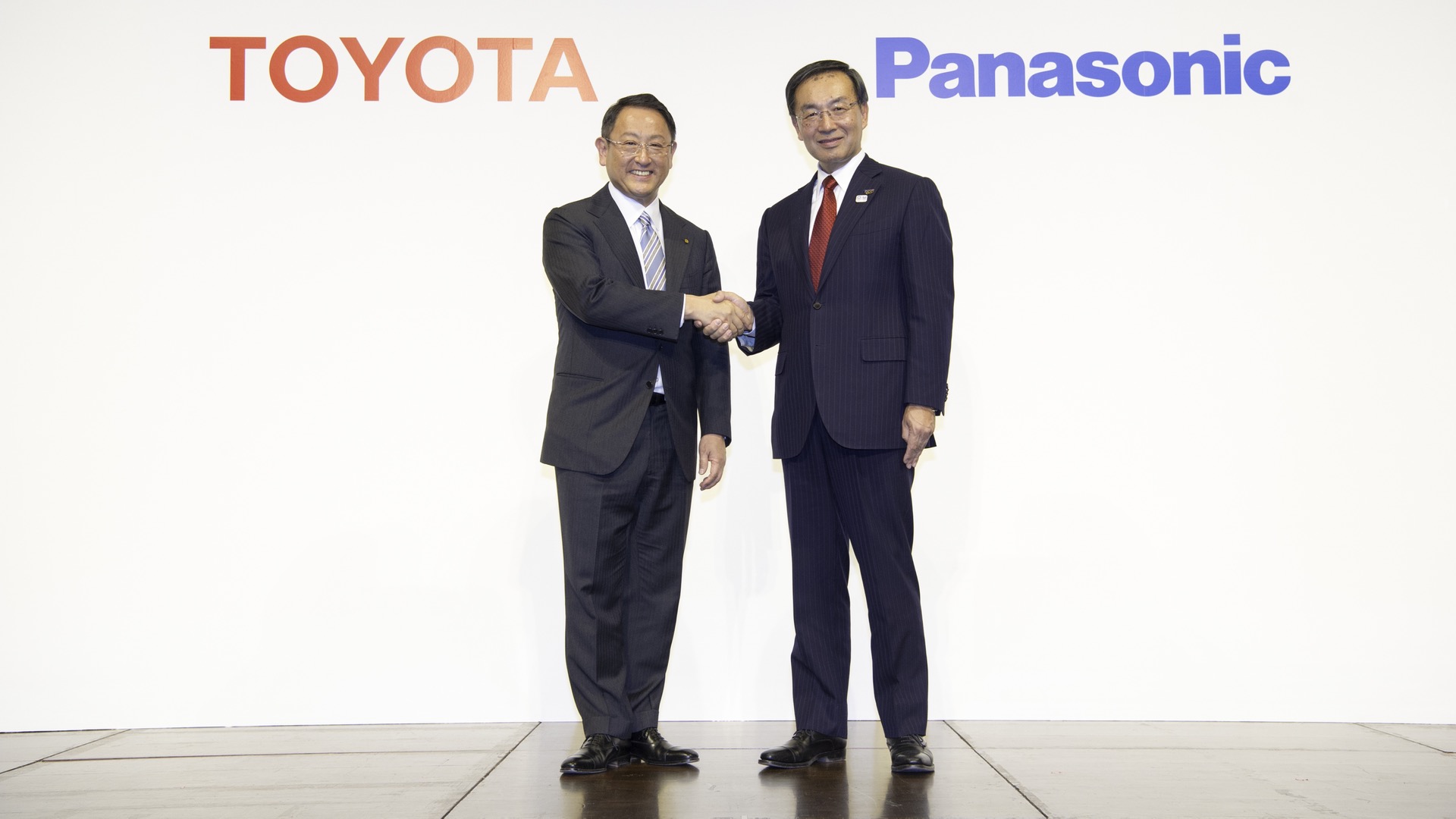

Toyota and Panasonic will study the feasibility of a joint battery business, a move that could have big implications for future electric cars. The move signals that Toyota really is serious about embracing battery-electric cars, even as it clings to hydrogen fuel cells today.
The two companies will study the details of large-scale joint battery production. Panasonic currently supplies battery cells for Toyota hybrids and plug-in hybrids, but the automaker will need a much larger supply of batteries in the coming years.
At a joint press conference announcing the deal, Toyota CEO Akio Toyoda said the company hopes to sell 4.5 million hybrids and plug-in hybrids by 2030, along with a million battery-electric cars and hydrogen fuel-cell vehicles. Toyota has been a staunch advocate of fuel cells, but more recently it began discussing plans for a mass-market battery-powered car as well.
That electric car will be powered by solid-state batteries, which are often discussed but haven’t been successfully commercialized yet. Solid-state batteries are said to offer a number of advantages, including increased energy density, meaning batteries can store more electricity without increasing their physical size. Unlike the liquid electrolyte used in conventional lithium-ion batteries, the solid electrolyte that gives solid-state batteries their name also isn’t flammable.
An alliance with Panasonic could help Toyota commercialize solid-state batteries. Panasonic is currently the sole battery supplier to Tesla, and a partner in the Silicon Valley automaker’s massive Nevada “Gigafactory,” so it knows a thing or two about large-scale battery production. If solid-state batteries live up to the hype, they could give Toyota and Panasonic a major advantage over their rivals. Imagine former electric-car naysayer Toyota eventually taking the lead in the segment. Stranger things have happened.